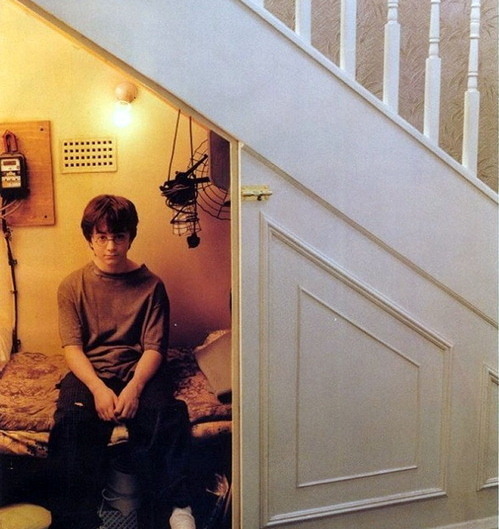I’ve given out a metric ton of crit recently and I’ve received a fair bit as well, so it’s been on my mind. I like to think that I’ve gotten pretty good at delivering critical thoughts in a way that won’t leave someone gnashing their teeth and wailing to the sky, so I’m going to share one key element that I think comes pretty close to being a good and general rule (much as I hate to use the r-word) of critique. Ready for it? Here goes:
It has nothing to do with you.
No, really. The story you’re getting ready to critique? It has nothing to do with you. Absolutely, one hundred and ten percent of nothing to do with you or your life.
 It’s easy to forget this. As a reader, we try to connect with characters and situations. We imagine what it would be like to be relegated to life in the cupboard under the stairs as a child, or receiving a prestigious and mysterious invitation to a new school. At the very least, we try to understand how these things could be possible and marvel at the world being built before our eyes. And if we disagree with Harry, we try to understand his motivations. We try to understand why a boy would stay in a home where he was stashed away like a dirty mop.
It’s easy to forget this. As a reader, we try to connect with characters and situations. We imagine what it would be like to be relegated to life in the cupboard under the stairs as a child, or receiving a prestigious and mysterious invitation to a new school. At the very least, we try to understand how these things could be possible and marvel at the world being built before our eyes. And if we disagree with Harry, we try to understand his motivations. We try to understand why a boy would stay in a home where he was stashed away like a dirty mop.As a critiquer (critter? critiquest?), our strategy changes. We’re looking at a story with an eye to helping the author shape and polish it until it’s as refined as the Hope Diamond! And this is where the potential for less than stellar crit comes in because this is where the tendency to react like a reader who identifies with a character gets in the way.
So here’s the thing, good critique has nothing to do with how much you do or don’t identify with the character on the page. Good critique has everything to do with how believable you find the character on the page.
Shall I illustrate?
Back to Harry tucked away in the cupboard under the stairs. You didn’t ask, but I’m going to tell you, I would NEVER let ANYone stuff me in a small room with spiders and water heaters and a creepy, creaky ceiling. I don’t care if they are related to me, if that had ever happened to me, you bet your sweet tush I’d have blown out the pilot light on that heater, hidden five cans of open tuna beneath the sofa, and hightailed it to anywhere but there. I would have made such a ruckus with the neighbors that the Dursley’s would have been shamed into giving me a proper room and I would have found some friends with moms willing to give me a hot meal once or twice a week. In short, you would never find me in such dire straights as Harry Potter was in at the start of book one.
…
Do you care?
(Pssst – the answer is no.)
Right, you don’t care because what I would or wouldn’t do doesn’t have the first thing to do with what Harry would or wouldn’t do. Much as it may surprise you, I am not Harry Potter.
Neither are you.
I know, I know, it sucks. Get over it.
You’re not Harry Potter. You’re not Bella Swan. You’re not Katniss Everdeen. But you believe these characters on the page. So the question is why?
I’ve seen more than a little crit based solely around the “I” of the reader. And I think the reaction of the reader can absolutely have bearing on the believability of the character, but critique isn’t a matter of pointing to something and saying “I don’t believe this because I would never do that.” Critique, actual critique, is following that impulse through to the "why."
What does that mean? It means we're going back to Harry under the stairs. If JK were to ask me for crit on the very beginning of the first book (this isn’t a call I expect, by the way), I wouldn’t do it by putting myself in Harry’s shoes. If I want to be worth my salt in crit, I would think super, super hard about why I reacted the way I did to that scene. I might instead tell her that reading that passage left me wondering about the resources available to Harry outside of the home (of course, I might also concede that my heart was bleeding for Harry so this is really a small issue). I might point to something about the Dursleys that made them appear too sympathetic. Or I might simply say that the tone was too dry, too precious, or too fill-in-the-blank.
There is a place for the “I” in critique. It’s all one person’s opinion, afterall. But it doesn’t belong in the story.
So that story you’re getting ready to crit? Remember this: You are not Harry Potter.

No comments:
Post a Comment